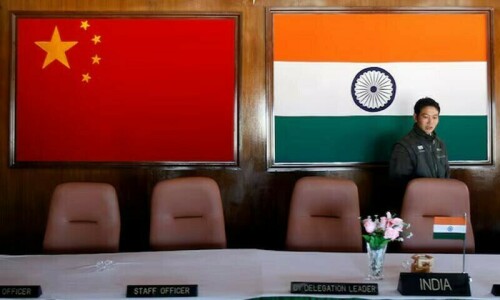OF late, there has been a rapid growth of think tanks in Pakistan. These organisations carry out policy-related research and are a platform for dialogue to facilitate informed decision-making. The growing community of think tanks in Pakistan is linked to the larger global research community. According to the Global Go To Think Tank Report 2020, published by the Think Tank and Civil Society Programme (TTCSP) of the University of Pennsylvania, there are 11,175 think tanks in the world, more than half of them in North America and Europe. The US has 1,872, the highest number for any country, according to Statista, a global data and business intelligence platform. Washington, DC, alone houses 397.
While some US think tanks have a longer history like the Carnegie Endowment for International Peace (established in 1910) and the Brookings Institution (1916), 58 per cent of American think tanks were founded in the last 25 years, according to TTCSP’s programme director, Prof McGann.
Asia is catching up, as manifested by a dramatic rise in the number of think tanks since the dawn of the 21st century. Some have become iconic names in the research community, such as the China Institutes of Contemporary International Relations, which is a composite of 15 institutes, and India’s Observation Research Foundation.
In Pakistan, most think tanks are sponsored by the government while some operate with assistance from institutional or private donors, exercising considerable autonomy. The new trend is for Pakistani universities to establish research institutes as an integral part of their academic programmes. Most think tanks in Pakistan deal with strategic studies, while some focus on sectoral issues.
>
As elsewhere in the world, input from think tanks is increasingly engaging the attention of public policy practitioners in Pakistan. The Brookings Institution published a book titled The Fifth Estate: Think Tanks, Public Policy, and Governance in 2016, arguing that think tanks constitute the fifth estate, the other four being the clergy, nobility, labour, and the press.
However, in Pakistan, academia and the research community often complain that their research work is not being utilised by the government to reform public policies, while government functionaries feel their time is spent mostly firefighting and handling the information overload rather than benefiting from the research community’s creative work. They also don’t find research products created by academia attractive enough because most research papers are voluminous and follow tedious research methodologies.
Think tanks are, therefore, increasingly producing short and understandable policy briefs to get information “in the right form, in the right hands, at the right time”, thus effectively influencing public policy, a key aim for them. In that sense, they are a useful bridge between the government and academia.
In the age of social media, AI, and big data, information flows can be overwhelming. Political leaders and other policymakers tend to absorb only concise pointed messaging. Public and private donors also provide funding only for project-specific ideas. However, the information age can be transformative if data is handled well. For instance, ideas generated by some think tanks influence public policy in a revolutionary manner. Some research articles, such as ‘End of History’ or ‘Clash of Civilisations’ generated debate amongst academics as well as policy practitioners in nearly every country.
More recently, the US National Security Strategy of December 2017, which announced strategic competition with China as its top priority, was preceded by a flurry of research articles on spheres of influence and even a 2017 book Destined for War by Graham Allison. Likewise, considerable research work on climate change has influenced global action on mitigating its adverse impacts.
Given that Pakistan is confronted with monumental political, economic and social challenges, new ideas and out-of-the-box thinking are crucial. The National Security Policy announced in January 2022 had embraced many of the ideas discussed in various think tank settings. It would be important to rejuvenate the waning enthusiasm of many think tanks which were ready to build on the six-point agenda of the NSP.
Pakistan’s think tanks and academia need to persevere in generating ideas that can pull the country out of testing times. Government-sponsored think tanks should not spend their energies validating the official narrative but focus on creating ideas that can galvanise national potential in a country that has a rich civilisational, religious and archaeological heritage.
The writer is former foreign secretary and founder chairman of Sanober Institute Islamabad.
Published in Dawn, October 15th, 2023












































Dear visitor, the comments section is undergoing an overhaul and will return soon.